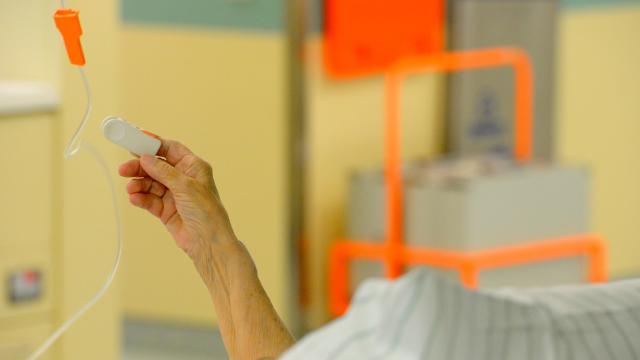A coffee or smoking habit can cause a person some serious trouble if they end up in the hospital, preliminary research suggests. Patients in the intensive care unit often suffer withdrawal symptoms from caffeine and nicotine, it found. Worse still, doctors might mistake the cause of those symptoms for something else, leading to unneeded testing or treatments.
The authors of the research, presented this past weekend at the annual meeting of the European Society of Anesthesiology, conducted a review of the medical literature on people dealing with withdrawal symptoms in the ICU. They ultimately looked at 12 studies involving nearly 500 adults treated in the ICU between 2000 to 2018.
Compared to non-smokers, they found, smokers who were without nicotine were twice as likely to feel especially agitated while on intensive care (64 per cent versus 32 per cent). This agitation also made them more likely to have their intubation tubes or intravenous lines dislodged (14 per cent of displacements caused by agitation in smokers compared to 3 per cent of non-smokers), which can be harmful and impact their recovery.
Caffeine withdrawal, on the other hand, was linked to drowsiness, nausea, vomiting, headaches, and a higher rate of delirium (a complex condition marked by cognitive impairment).
These physical issues are only part of the problem, according to lead author Maya Belitova, an associate professor at the Medical University of Sofia in Bulgaria.
“These symptoms resemble conditions such as meningitis, encephalitis, and intracranial haemorrhage—this may confuse clinical diagnosis and result in unnecessary tests which can cause patient harm, cost a lot of money, and waste time,” said Belitova in a release issued by the European Society of Anesthesiology.
The lack of familiarity doctors have with nicotine and caffeine withdrawal symptoms also makes it hard to know the best way to help ICU patients suffering from them, Belitova and her co-authors noted.
Some of the research they looked at, for example, suggests that caffeine injections can alleviate withdrawal-related headaches, but there’s little to no evidence of their effects on ICU patients. And while nicotine replacement therapy should help withdrawal symptoms, there’s also evidence that it can also contribute to a higher risk of prolonged delirium, which can then worsen the chances of recovery.
“ICU patients may benefit from nicotine substitution or caffeine supplementation, but with little evidence for their effectiveness, this should be left up to the judgement of treating physicians,” Belitova said.
The potential for confusion is definitely large, even in the U.S., where these vices aren’t quite as rampant as in Europe. Some surveys suggest that around two-thirds of Americans drink at least a cup of coffee every day, while 14 per cent smoke cigarettes.
